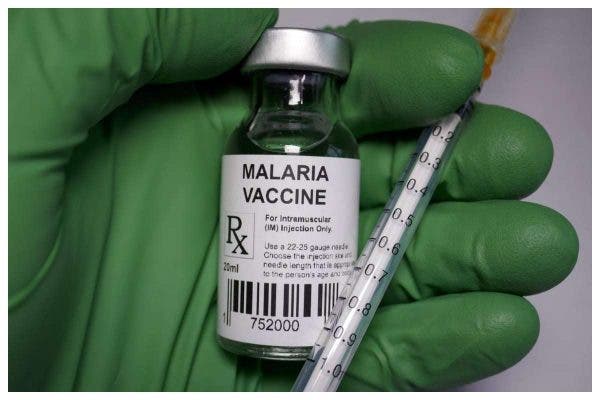The World Health Organisation (WHO) on Wednesday endorsed the first vaccine against malaria which is known as RTS, S/AS01 malaria vaccine.
This is the first against the mosquito-borne disease that kills more than 400,000 people a year, mostly African children.
Africa Today News, New York gathered that the decision to endorse the vaccine followed a review of a pilot programme deployed since 2019 in Ghana, Kenya and Malawi in which more than two million doses were given of the vaccine, first made by the pharmaceutical company GSK in 1987.
After reviewing evidence from those countries, the WHO said it was ‘recommending the broad use of the world’s first malaria vaccine’, the agency’s director-general Tedros Adhanom Ghebreyesus said.
The WHO explained that it was recommending children in sub-Saharan Africa and in other regions with moderate to high malaria transmission get four doses up to the age of two.
Read Also: COVID-19: Infections In Africa Has Dropped By 20% – WHO
Findings from the vaccine pilot showed it ‘significantly reduces severe malaria which is the deadly form by 30 percent,’ said Kate O’Brien, Director of WHO’s Department of Immunisation, Vaccines, and Biologicals.
The vaccine is ‘feasible to deliver’, she added and ‘it’s also reaching the unreached… Two-thirds of children who don’t sleep under a bed net in those countries are now benefiting from the vaccine.’
Many vaccines exist against viruses and bacteria but this was the first time that the WHO recommended broad use a vaccine against a human parasite.
The vaccine acts against Plasmodium falciparum — one of five malaria parasite species and the most deadly.
‘From a scientific perspective this is a massive breakthrough,’ said Pedro Alonso, Director of the WHO Global Malaria Programme.
The estimated cost of malaria in sub-Saharan Africa is over 12 billion dollars a year, Alonso said at a news conference following the announcement.
Before the newly recommended vaccine can reach children in need, the next step will be funding.
Gavi vaccine alliance said in a statement after the WHO announcement that ‘global stakeholders, including Gavi, will consider whether and how to finance a new malaria vaccination programme for countries in sub-Saharan Africa.’
The fight against malaria received a boost in April when researchers from Britain’s Oxford University announced that their Matrix-M vaccine candidate had become the first to surpass the WHO’s threshold of 75-percent efficacy.
AFRICA TODAY NEWS, NEW YORK
